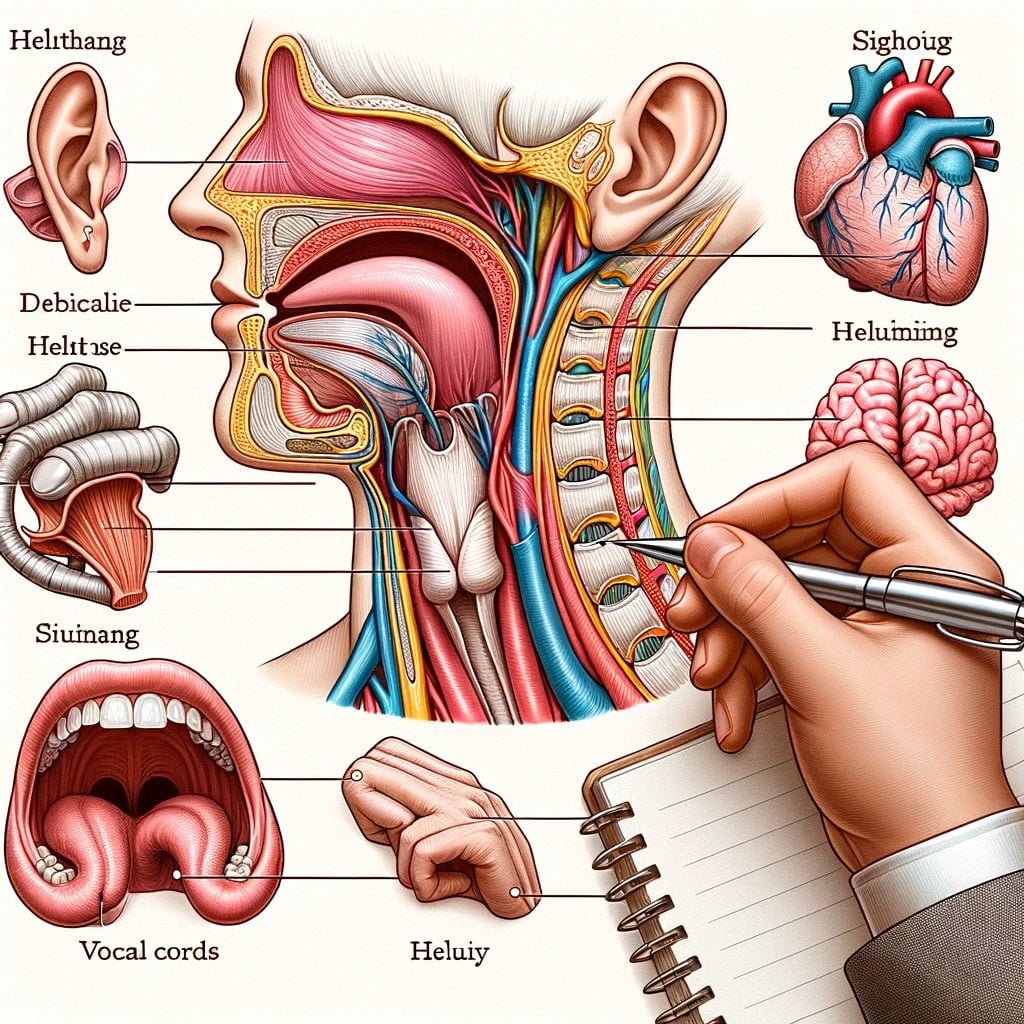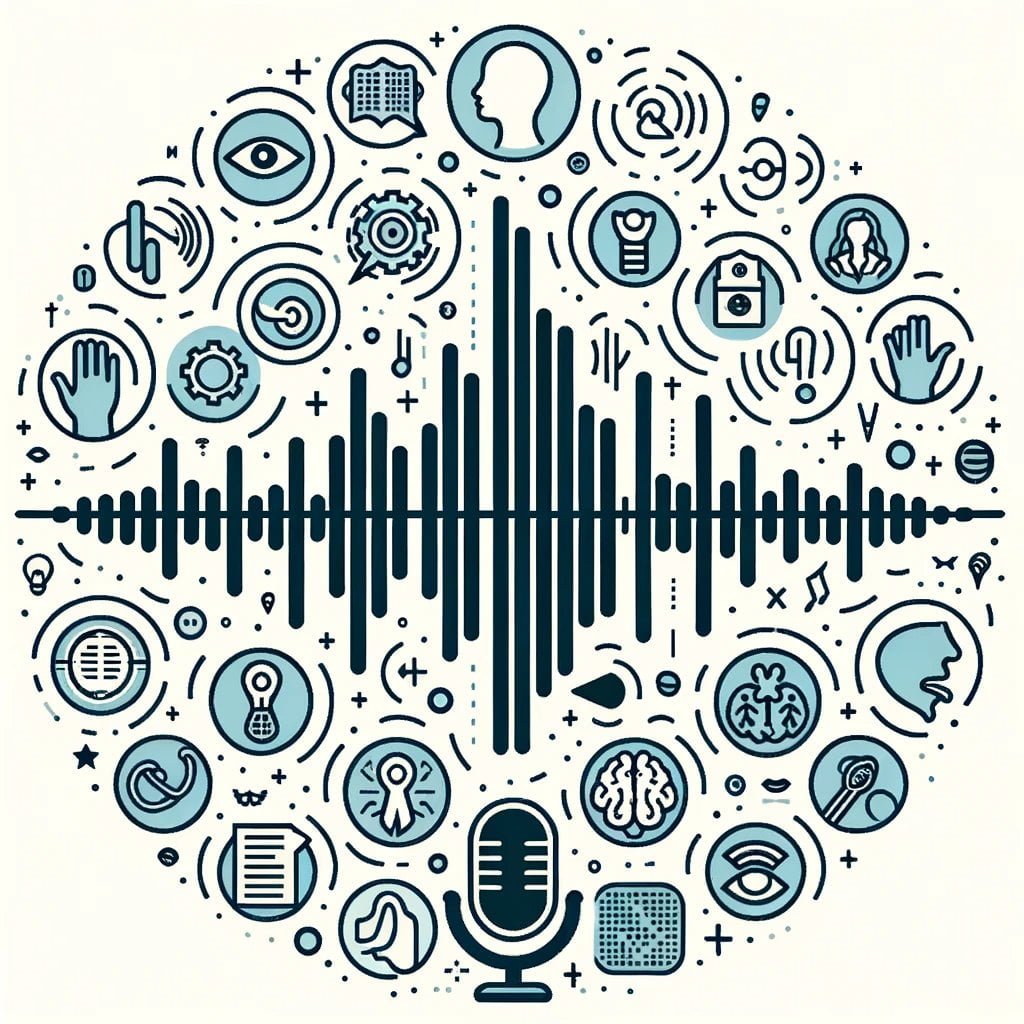US communication difficulties are among the most prevalent disabilities. These diseases, from speech impairments to language issues, might hinder social interaction. A speech pathology expert shares surprising facts and insights in this article. Our author, a highly trained speech-language pathologist, discusses the relevance of speech pathology and its benefits for communication difficulties. Explore this fascinating realm and learn about speech and language impairments with us.
Speech Pathology Facts
What is Speech Pathology?
Speech-language pathology, which evaluates, diagnoses, treats, and prevents communication and swallowing difficulties, is fascinating. It studies speech, language, fluency, feeding, and swallowing scientifically.
Who Does Speech Pathology Help?
Speech pathology assists all ages in speaking and communicating better. Speech pathologists improve communication for children with speech impediments, adults recuperating from sickness or injury, and those with special needs.
The Role of Speech Pathologists
Speech pathologists, 88.1% of whom are women, undergo extensive training to become professionals. State licenses are required for master’s degree holders. Speech pathologists can improve people’s lives by meeting their communication needs with their expertise.
Speech Pathology Steps
Consider becoming a speech pathologist using these steps:
Get a Bachelor’s Degree: Study communication sciences and disorders or a similar discipline.
Get an authorized master’s degree in speech-language pathology.
Supervised clinical practicum hours provide hands-on experience.
State Licensure: State regulations differ, so get licensed before practicing.
Consider Certification: While not required, an ASHA Certificate of Clinical Competence in Speech-Language Pathology can boost your career.
Pros and Cons of Speech Pathology
As with any profession, speech pathology has its pros and cons. Let’s explore them:
Pros:
- Making a Difference: Being a speech pathologist allows you to positively impact individuals’ lives by helping them improve their communication skills.
- Varied Work Environments: Speech pathologists can work in schools, hospitals, rehabilitation centers, private clinics, or even in clients’ homes.
- Job Security: There is a demand for qualified speech pathologists, providing stable employment opportunities.
- Lifelong Learning: As new research and techniques emerge, speech pathologists have the opportunity to continuously learn and grow in their field.
Cons:
- Emotional Challenges: Working with individuals dealing with communication disorders can be emotionally demanding at times.
- Administrative Tasks: Besides direct patient care, speech pathologists often have administrative responsibilities that can be time-consuming.
- Continuing Education Requirements: To maintain licensure and certifications, speech pathologists need to undergo regular continuing education, which requires time and dedication.
Reliable Resources
For more comprehensive information on speech pathology, you can refer to the following reliable resources:
- Wikipedia
- Zippia
- Verywell Health
- Speech Pathology Graduate Programs
- WebMD
Remember that speech pathology facts can raise awareness and assist speech-language-impaired people attain their full potential.
Speech pathology is fascinating because it diagnoses and treats communication difficulties. “What are some interesting facts about speech pathologists?” may intrigue you. Did you know speech pathologists may treat toddlers to seniors? They help with language, speech, fluency, and voice difficulties. To learn more about the intriguing world of speech pathology, check out this article: What are some interesting facts about speech pathologists?
Have you thought, “What are three facts about speech?” If so, lucky you! Speech is essential to our health and communication. Speech is crucial to our daily life, from socializing to expressing our feelings. If you’re interested in discovering some intriguing facts about speech, click here: What are three facts about speech?
Now, let’s shift our focus to speech disorders. Have you ever wondered, “What is a fact about speech disorder?” Well, speech disorders can manifest in various forms, such as stuttering, apraxia, and voice disorders. The impacts of these disorders can differ greatly from person to person, but with the help of speech pathologists, individuals can overcome these challenges and improve their communication skills. To delve deeper into the world of speech disorders, click here: What is a fact about speech disorder?
Are you curious about the benefits of speech pathology? Speech pathology offers a wide range of advantages for individuals with communication difficulties. From enhancing language skills to improving swallowing abilities, speech pathologists play a vital role in helping individuals regain their ability to communicate effectively. If you want to explore the many benefits of speech pathology, click here: What are the benefits of speech pathology?
If you’re wondering why some people have such a deep love and passion for speech pathology, you’re not alone. Speech pathology is a rewarding career that allows professionals to make a profound impact on the lives of others. So, why do so many individuals love speech pathology? If you’re curious to find out, click here: Why do you love speech pathology?
Did you know that there are some intriguing facts about speech that may surprise you? Whether it’s the speed at which we can process speech or the fascinating phenomenon of accents, speech is full of fascinating tidbits. To discover some mind-blowing facts about speech, click here: Did you know facts about speech?
The goal of speech language pathology goes beyond just helping individuals speak more clearly. Speech pathologists also aim to improve language comprehension, promote social communication skills, and enhance overall quality of life. If you’re curious about the goals of speech language pathology, click here: What is the goal of speech language pathology?
Have you ever wondered why people seek the help of speech pathologists? Well, there are numerous reasons why individuals may turn to speech pathology services. From children with developmental delays to adults with neurological conditions, speech pathologists provide essential support to help individuals overcome communication challenges. To learn more about why people see speech pathologists, click here: Why do people see speech pathologists?
While speech therapy has numerous benefits, it’s important to acknowledge that there can be some potential drawbacks as well. If you’re interested in exploring the disadvantages of speech therapy, click here: What are the disadvantages of speech therapy?
Now that you’ve discovered some captivating information about speech pathology and related topics, we hope you feel inspired to dive deeper into this intriguing field! Happy exploring!
Speech & Language Disorders
Enter the intriguing realm of speech and language impairments! As an experienced speech-language pathologist, I’ve seen how these diseases affect people. Poor communication can severely impact how people interact and express themselves.
Exactly what are speech disorders? Normal speech is hindered in certain conditions. Imagine having trouble speaking, repeating sounds, or pausing often. These are some common speech disorder symptoms. Early intervention is crucial, so recognize these indications and get help. Asking for help improving communication skills is fine.
Causes of speech disorders? They can be caused by brain or vocal cord injury, muscle weakness, paralysis, or polyps. Untreated speech difficulties can lower confidence and quality of life. The good news is that speech therapy is the major treatment for speech difficulties. Speech therapy helps people express themselves better by restoring speech control and communication skills.
Let’s examine particular speech abnormalities. Damage to a brain region causes aphasia. Reading, speaking, and writing can be affected by aphasia. Imagine not understanding others or finding the appropriate words to express yourself. Here came speech-language pathologists. These experts diagnose and treat speech issues, improving quality of life.
Other speech disorders include dysarthria, which causes muscle weakness and difficulties speaking. It might be medically acquired or developmental. Imagine not having the strength to speak. It can make communication difficult. Dysarthria patients can improve their speech and overcome these obstacles with speech-language pathologists.
Apraxia, another speech impairment, can affect daily duties even if instructions are comprehended. It is a neurological disease that makes tasks, especially communication, challenging despite knowledge and understanding. Imagine having the speech outline in your head but struggling to perform it. Speech-language pathologists examine and treat apraxia, teaching people how to communicate better.
Not just speech impairments can affect people. Language difficulties also influence communication. These diseases can cause difficulty understanding others or communicating thoughts, ideas, and feelings. Language difficulties can severely disrupt socialization, learning, and academic success. Speech-language pathologists tirelessly assess and treat these language problems, helping people communicate and form meaningful relationships.
The prevalence of speech and language difficulties is crucial. Nearly 10% of black children suffer voice, speech, language, or swallowing disorders. These numbers highlight the need to address these issues and provide equal speech-language pathology services. Awareness, advocacy, and proper solutions can create a more inclusive society where everyone can communicate.
In conclusion, speech and language impairments can greatly damage people’s lives, impacting their communication and relationships. Speech-language pathologists and correct interventions can help people overcome these obstacles and enhance their communication abilities. Remember, asking for help is brave, and with the appropriate instruction, everyone can speak up.
A speech-language pathologist, I love spreading awareness and correct information regarding speech and language impairments. By presenting these amazing facts, I hope to inspire empathy for those facing similar issues. Remember that speech and language problems can be solved. Contact a speech-language pathologist today to enhance communication and your future.
The Benefits of Speech Pathology
Speech pathology helps people with swallowing and communication issues. As a highly skilled speech-language pathologist, I am happy to provide some fascinating insights regarding speech pathology’s benefits. Jump in!
Improving Communication Skills
Communication improvement is one of speech pathology’s biggest benefits. Our daily lives depend on efficient communication with family, friends, and strangers. Speech pathologists assist people detect and treat communication issues to increase their clarity and confidence. Speech pathology can improve relationships and interactions by addressing communication goals and using various therapy strategies. My patients commonly hear, “Unlocking your communication potential opens endless doors of connection and understanding.”
Cultivating Vital Social Skills
Speech pathology helps establish social cues and improve communication. Understanding and interpreting non-verbal clues including facial expressions, body language, and tone of voice is essential to social communication. Speech pathologists help people with social communication issues by teaching them how to communicate effectively. Speech pathology helps people connect and thrive in social contexts by interpreting social cues. Say, “Mastering the art of social communication can open the doors to a world of shared experiences.”
Enhancing Academic Performance and Cognitive Function
Academic achievement and cognitive function are also improved by speech pathology. Communication skills are essential for learning, interpreting instructions, and expressing ideas in the classroom. Speech pathologists work with educators and individuals to identify and treat speech and language issues that may hamper academic achievement. Speech pathology helps students succeed academically through targeted interventions and therapy. Research also shows that speech pathology improves attention, memory, and problem-solving. Thus, “Unlocking the power of communication opens the gateway to academic success and a sharper mind.”
Addressing Speech Issues
Speech pathology is known for treating articulation, fluency, and voice abnormalities. Articulation abnormalities impair speech comprehension. Fluency disorders interrupt speech flow, causing stuttering or hesitations. Voice abnormalities can cause hoarseness, pitch issues, or raspiness. Speech pathologists diagnose and treat these issues using evidence-based methods. Speech pathology can help people overcome these issues and regain speech control with tailored therapy. My patients often hear, “Unleash the power of clarity and fluency to let your voice be heard.”
Boosting Confidence and Reducing Anxiety
Speech pathology boosts self-confidence and reduces communication anxiety. Imagine how frustrating and self-conscious it is to struggle to express oneself. Speech pathologists understand these issues and can help improve confidence. Through customized techniques and interventions, people can overcome communication hurdles and feel empowered. Their self-confidence rises as they make progress, allowing them to participate more in social and daily activities. My patients often hear, “Empowering your voice can create a ripple effect of confidence and self-assurance.”
Promoting Swallowing Function and Safety
Speech pathology helps swallowing and reduces choking and aspiration. Dysphagia, or swallowing difficulties, can result from muscle weakness or swallowing mechanism impairment. Speech pathologists can assess swallowing function and create customized treatment programs. They enhance swallowing and prevent problems using focused workouts and procedures. This supports safety, well-being, and sufficient nourishment and hydration. Say, “Improving swallowing function paves the way for a more nourished and confident you.”
In conclusion, speech pathology has several benefits that improve quality of life. Speech pathology helps people overcome obstacles by enhancing communication, social development, academic performance, and swallowing. Speech pathology has several benefits for children, adults, and seniors. You or a loved one may be having trouble swallowing or communicating. Speech pathology can help you improve your communication and well-being.
| Benefits of Speech Pathology |
|---|
| – Improves communication skills |
| – Develops important social cues |
| – Enhances academic performance and cognitive function |
| – Addresses articulation, fluency, and voice issues |
| – Boosts confidence and reduces anxiety |
| – Promotes swallowing function and safety |
Did you know 90% of brain information is visual? This amazing statistic emphasizes the power of appealing graphics in communication. LolaApp’s “Interesting Facts about Speech.” discusses visual communication’s power. Discover amazing insights about how pictures affect understanding and memory. Click here to dive into the world of intriguing visual facts and unleash your inner fascination.
FAQ
Question 1: What is speech pathology?
Answer: Speech pathology is a field that specializes in the evaluation, diagnosis, treatment, and prevention of communication and swallowing disorders. It focuses on studying speech, language, fluency, feeding, and swallowing to help individuals improve their communication skills and overall quality of life.
Question 2: What are some common symptoms of speech disorders?
Answer: Common symptoms of speech disorders can include stuttering, repeating sounds, frequent pauses, distorting sounds, elongating words, and hoarseness. These symptoms can vary depending on the specific type and severity of the speech disorder.
Question 3: What causes speech disorders?
Answer: Speech disorders can be caused by various factors, such as damage to the brain or vocal cords, muscle weakness, paralysis, or polyps. Developmental factors and certain medical conditions can also contribute to the development of speech disorders.
Question 4: How are speech disorders treated?
Answer: The main treatment for speech disorders is speech therapy. Speech-language pathologists work with individuals to assess their specific speech needs and develop personalized treatment plans. Therapy techniques may involve exercises, drills, and strategies to improve speech production and communication skills.
Question 5: What are the benefits of speech pathology?
Answer: Speech pathology offers several benefits, including improving communication skills, social interaction, academic performance, cognitive function, and self-confidence. It can also help address speech issues such as articulation, fluency, and voice. Additionally, speech pathology can enhance swallowing abilities, reducing the risk of choking or aspiration.
- Unlocking the Universe: reading about stars 6th grade Guide - April 24, 2025
- Discover River Animals: A Complete Guide to Freshwater Ecosystems - April 24, 2025
- Water Cow Goby Care Guide: Expert Tips for Success - April 24, 2025



















